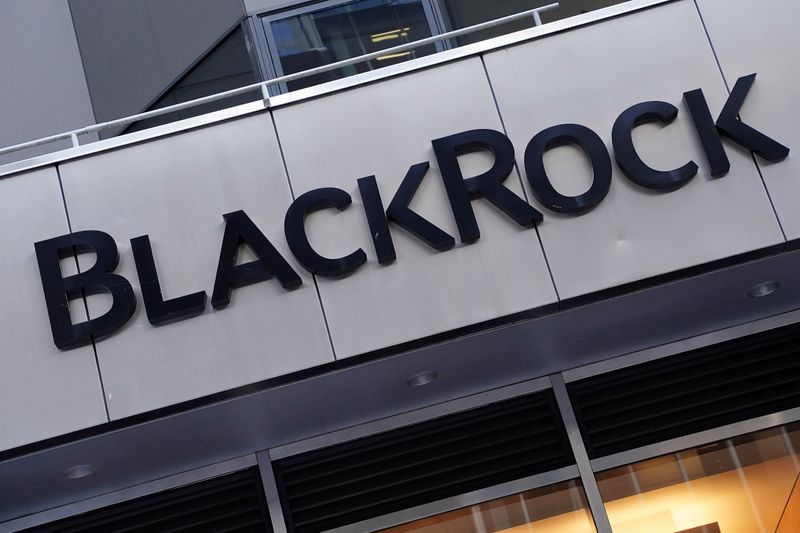NEW YORK (Reuters) – BlackRock, the world’s largest asset manager, said on Wednesday in its mid-year investment outlook that it has turned more bearish on U.S. Treasuries and views current bond market valuations as “very full.”
The outlook came as U.S. Treasury yields have continued their descent, with the yield on the 10-year Treasury note on Wednesday falling to a five-month low.
The shifts in strategy, which also saw BlackRock cut its U.S. equities position to neutral, are driven in part by the firm’s expectation that inflation is rising in the medium term. It expects higher bond yields due to rising inflation pressures rather than changes in monetary policy, which BlackRock said creates a positive environment for equities.
BlackRock said higher expectations of inflation are pushing nominal yields higher while real rates – which are adjusted for inflation – remain depressed.
“We’ve used that opportunity of falling yields to establish a shorter or a more underweight duration position as we believe that valuations over the 6-12 month horizon look very full to us,” said Scott Thiel, chief fixed income strategist at BlackRock Investment Institute, during the investment outlook presentation.
Thiel noted that it was not just the fundamental story that drove BlackRock to add to its underweight position in Treasuries. It is “also because of the diminishing quality of the ballast in a portfolio that Treasuries at this level offer,” he said.
The recovery from the coronavirus recession is beginning, with Europe and other major economies catching up with the United States, said BlackRock. That recovery is a boon for risk assets, in particular European equities, on which BlackRock has moved from neutral to overweight.
But while BlackRock sees the environment as broadly supportive of risk assets, it has nevertheless cut its position on U.S. equities from overweight to neutral. That is because it believes that the trends that have driven corporate profit margins higher in recent years may soon reverse.
“Input and labor costs are on the rise amid rising inflation and supply shortages in many sectors. Financing costs are rising again, albeit from low levels. And corporate tax hikes are on the table in the U.S., as well as a coordinated push for a global minimum tax that would reduce the ability of multinationals to shift profits to low-tax jurisdictions,” the BlackRock outlook report said.
(Reporting by Kate Duguid, Editing by Franklin Paul and Andrea Ricci)



















